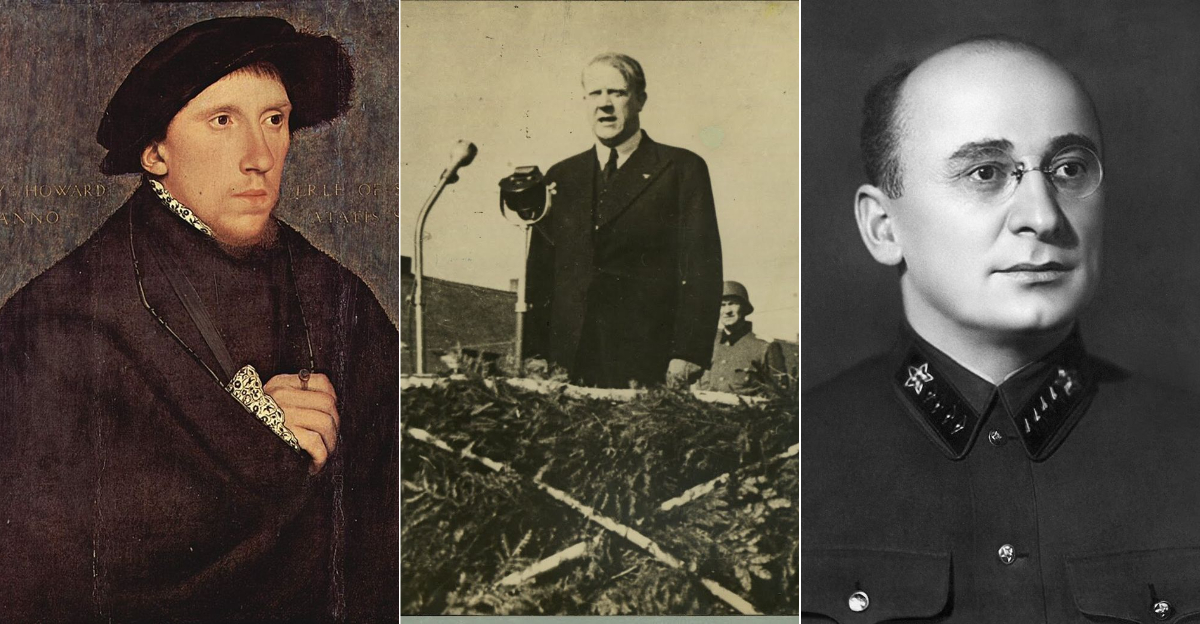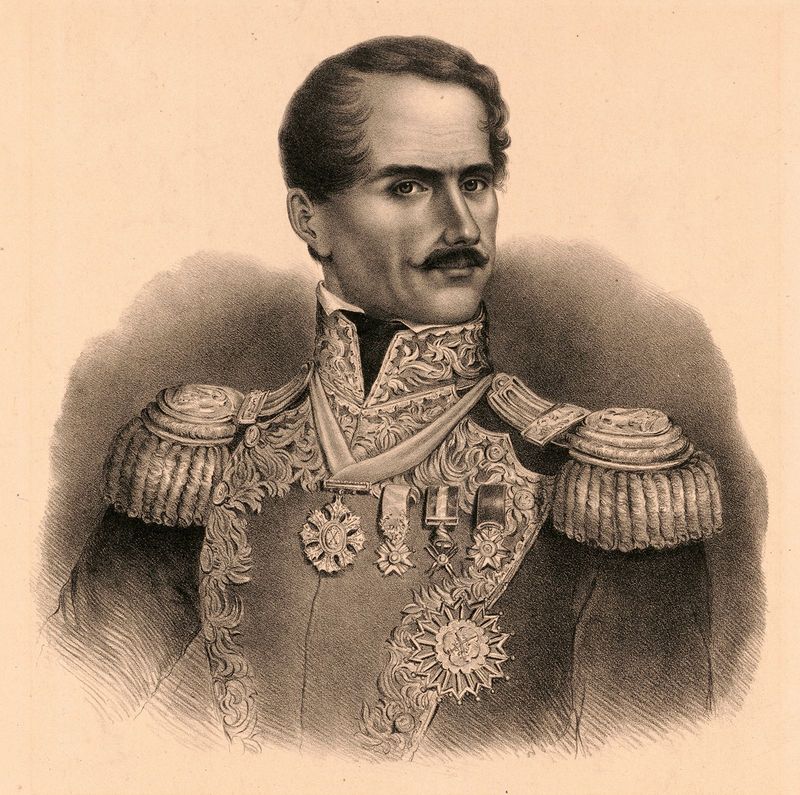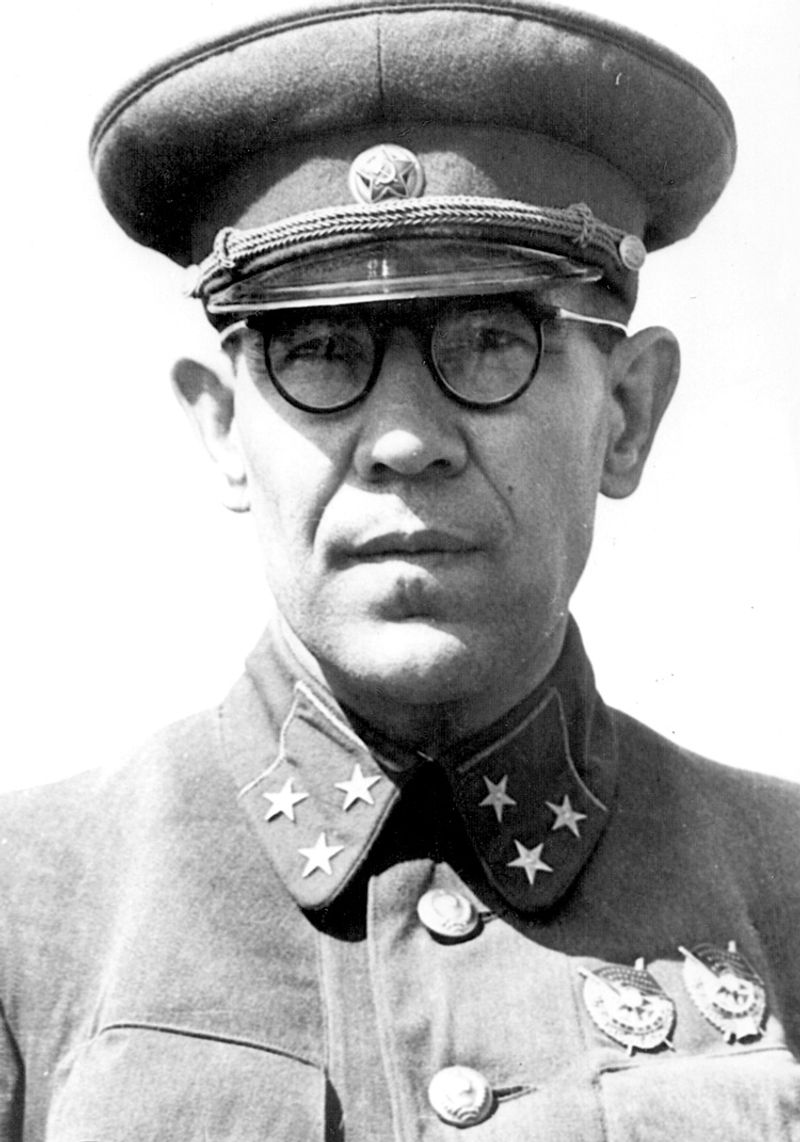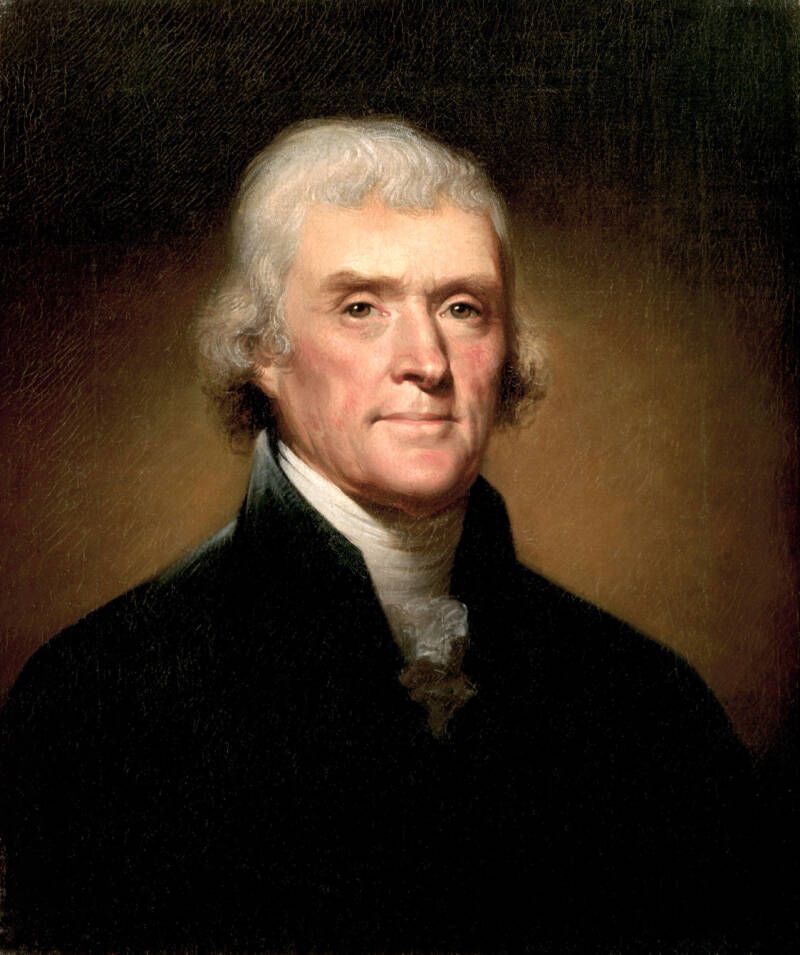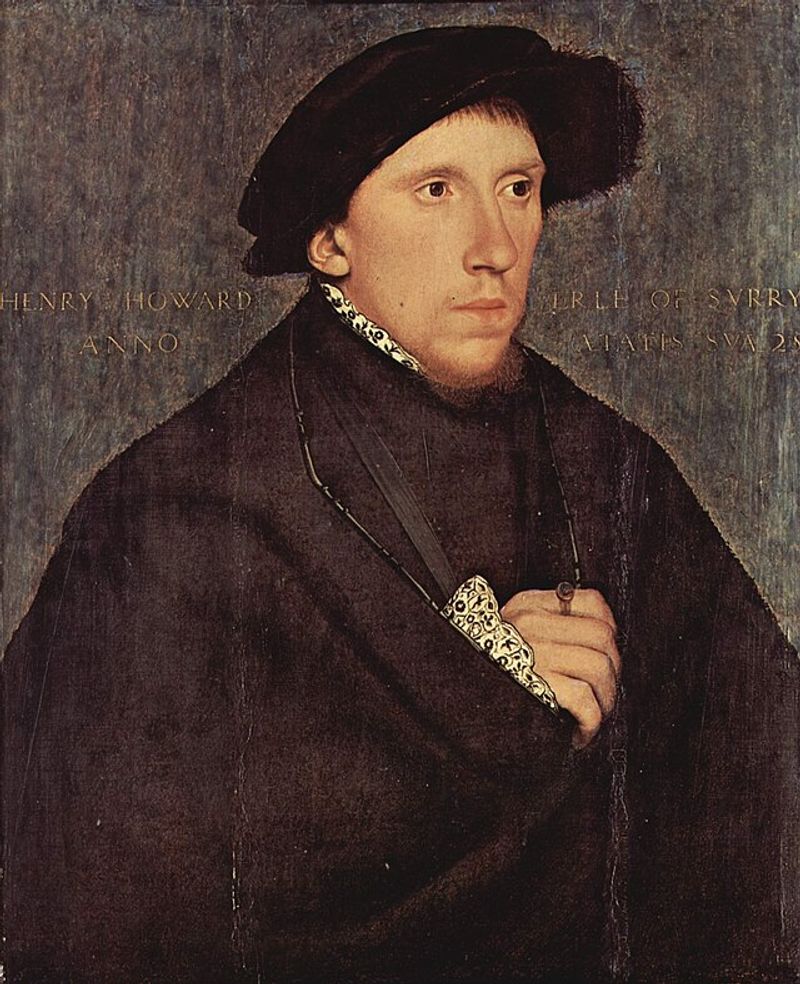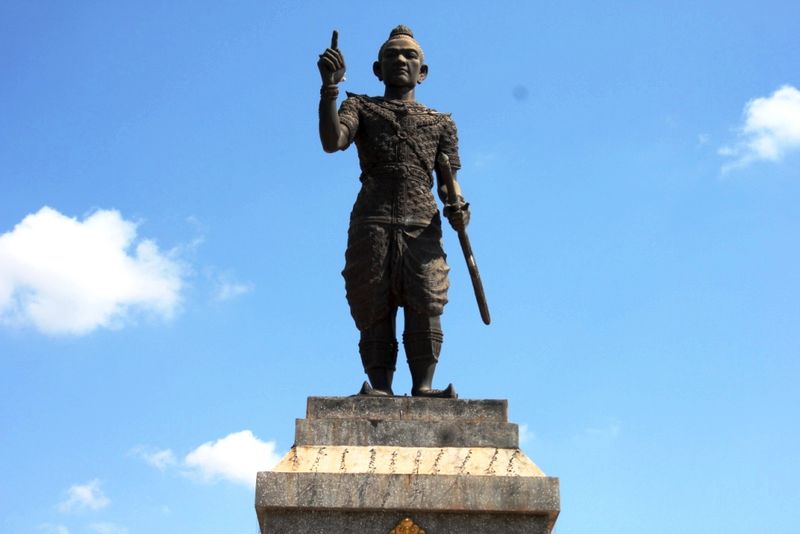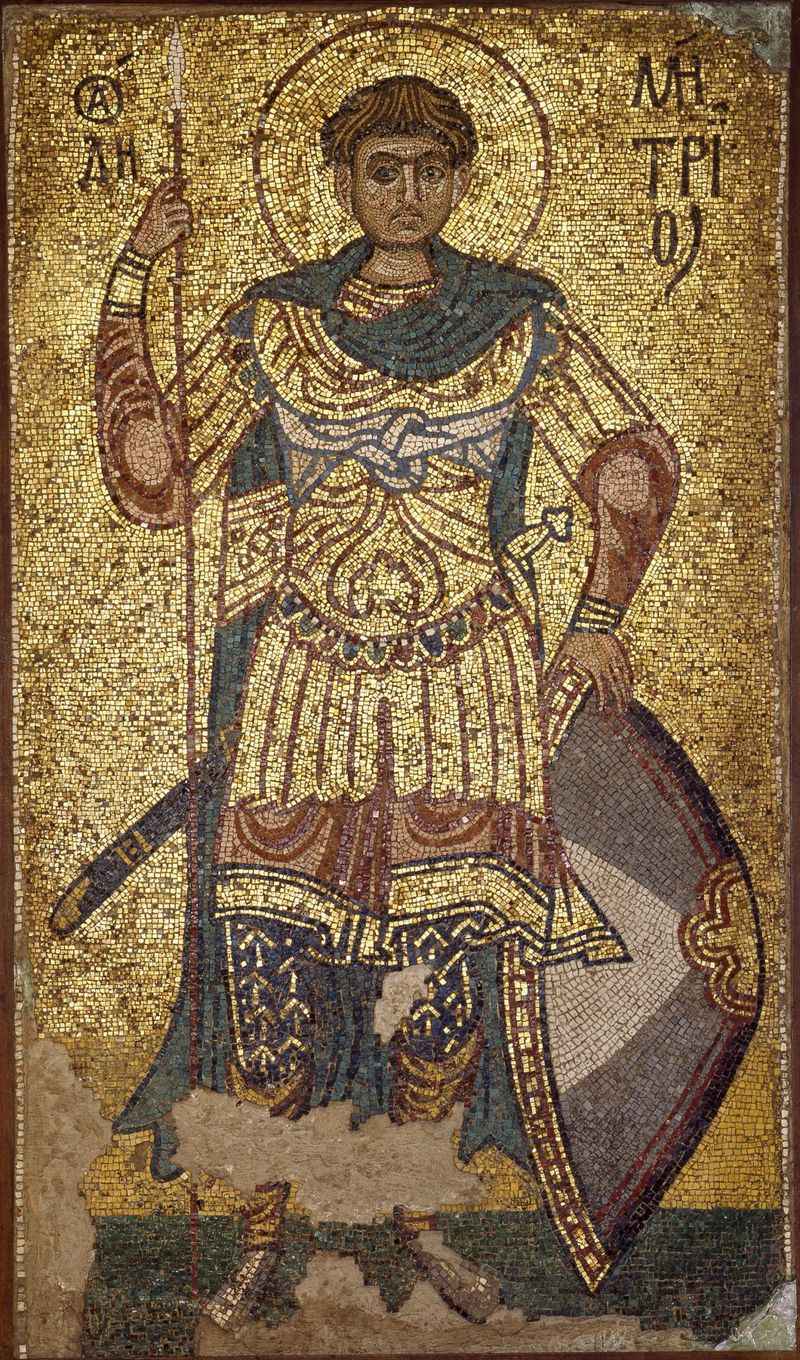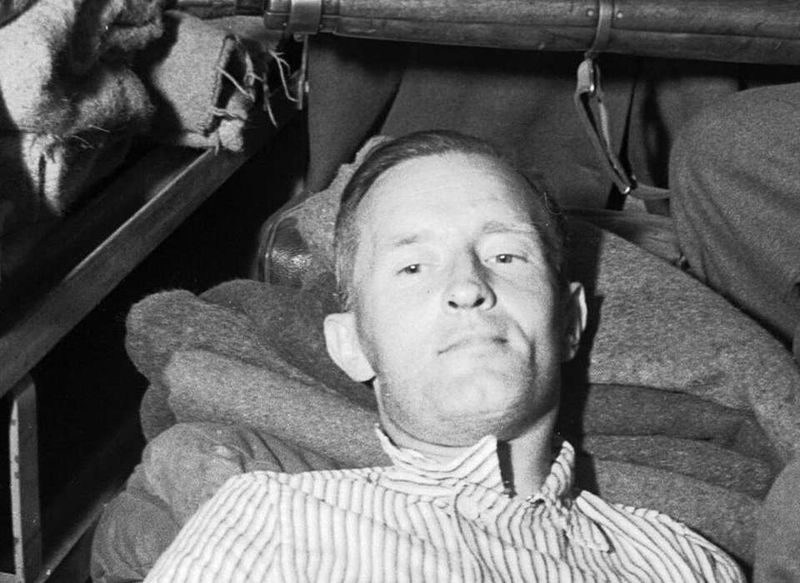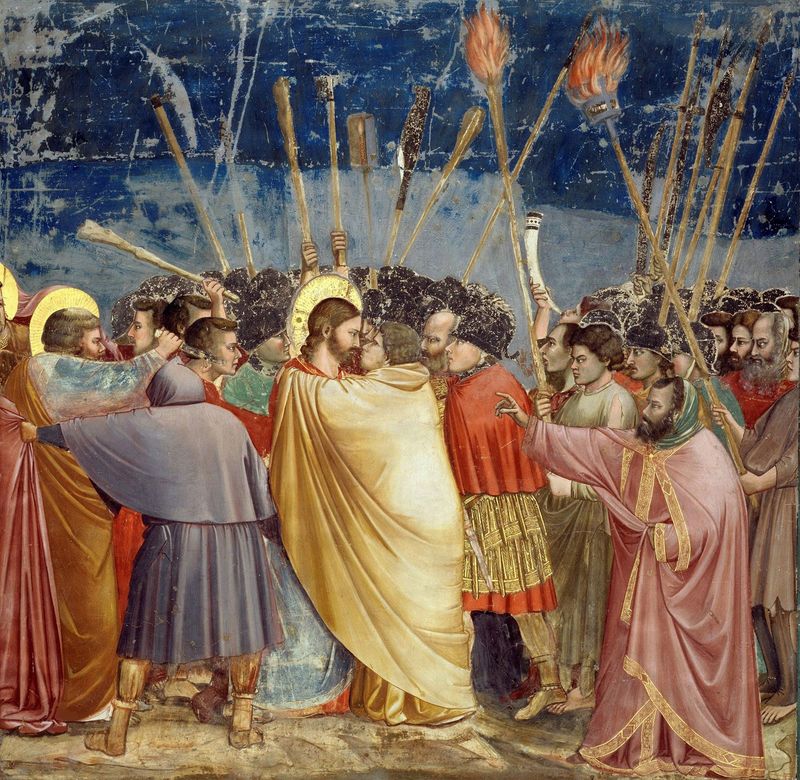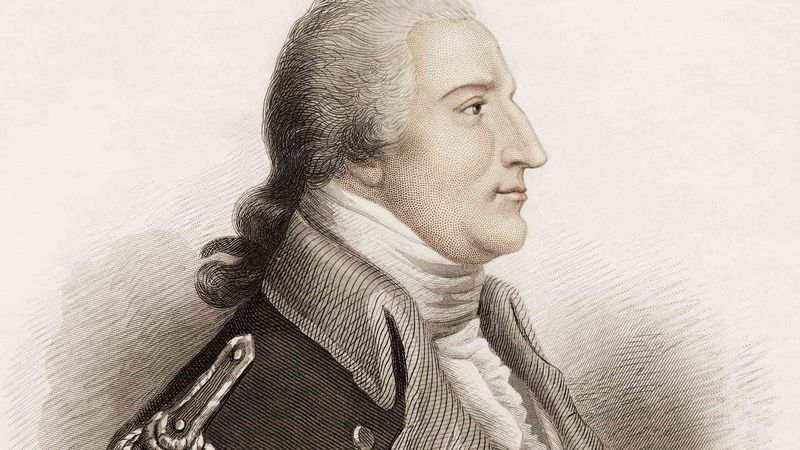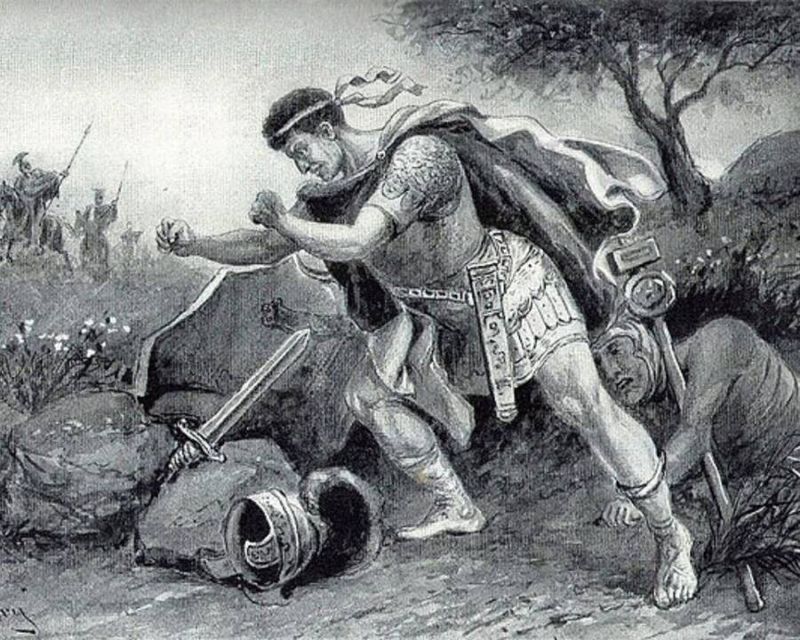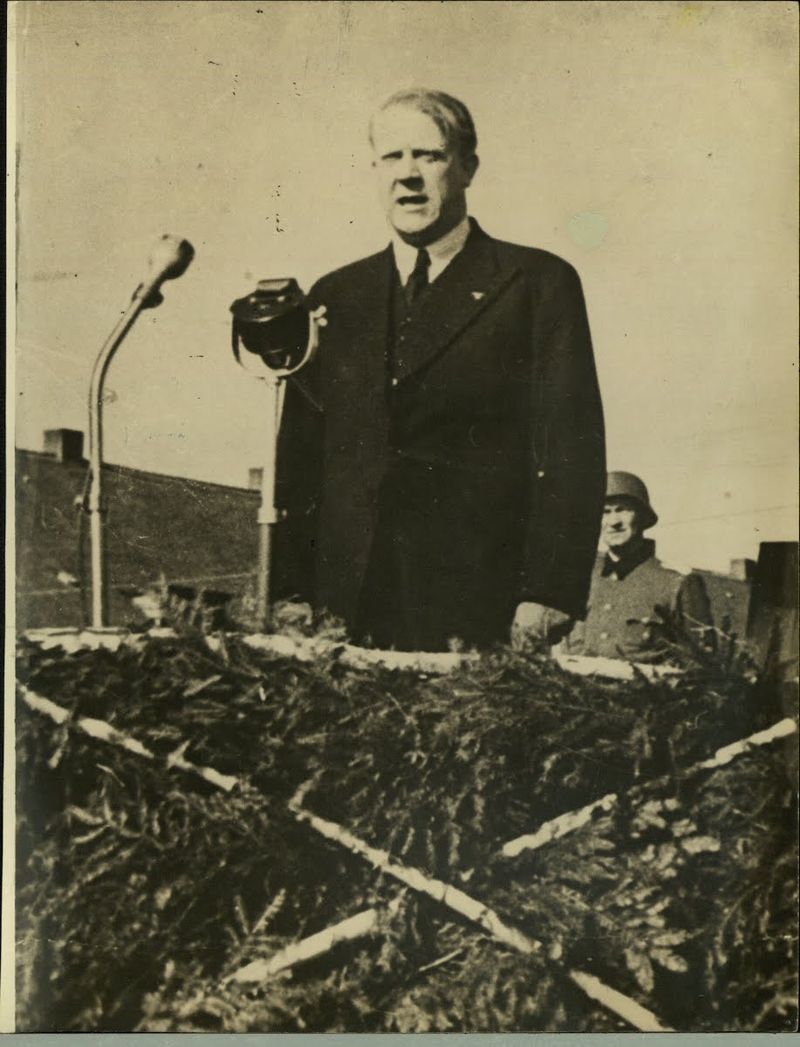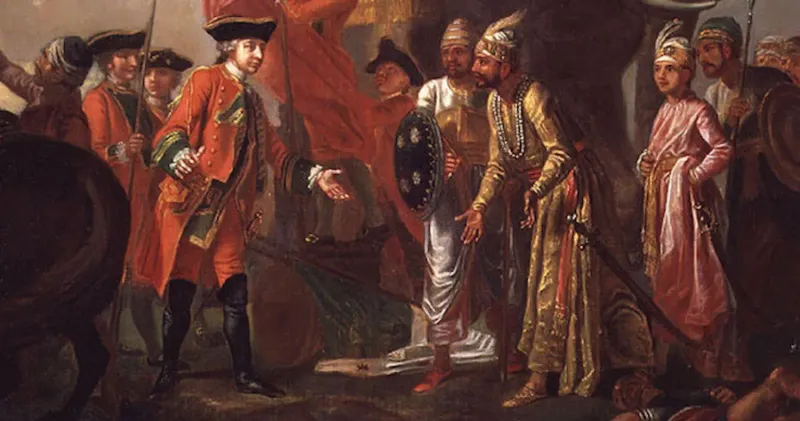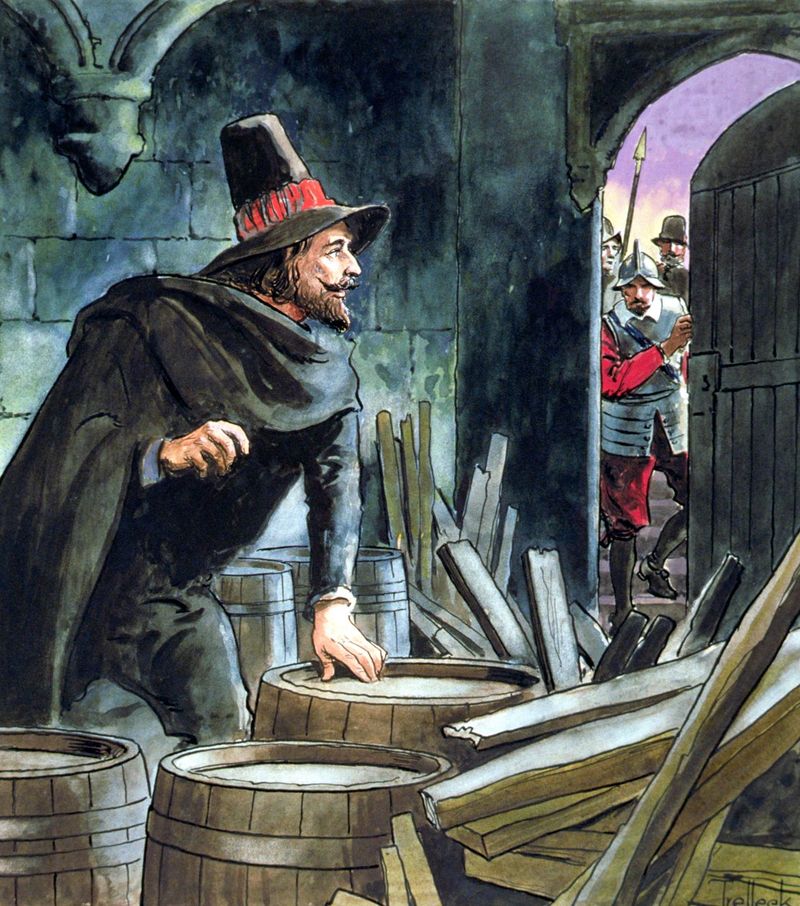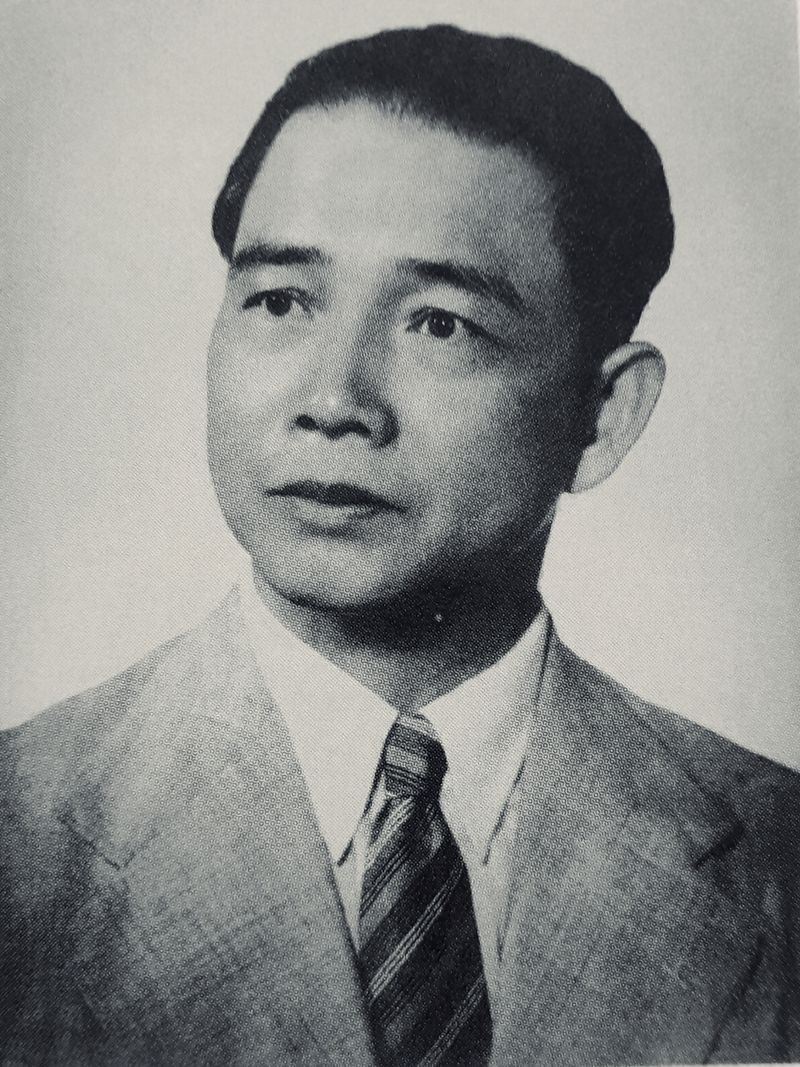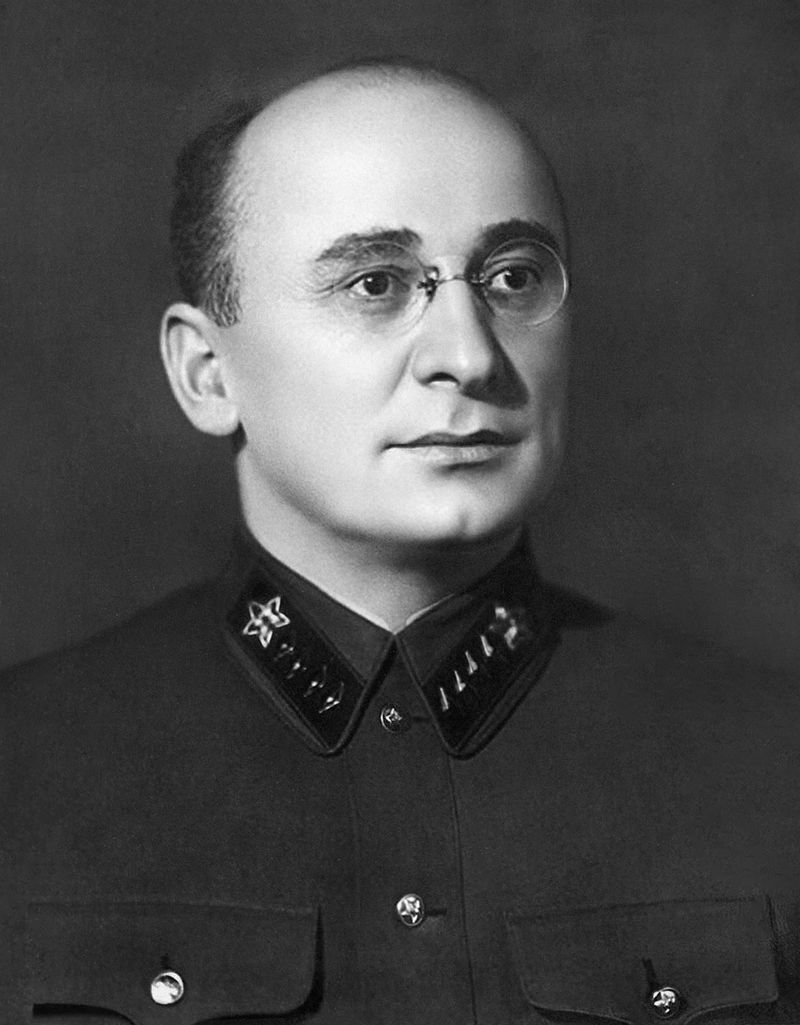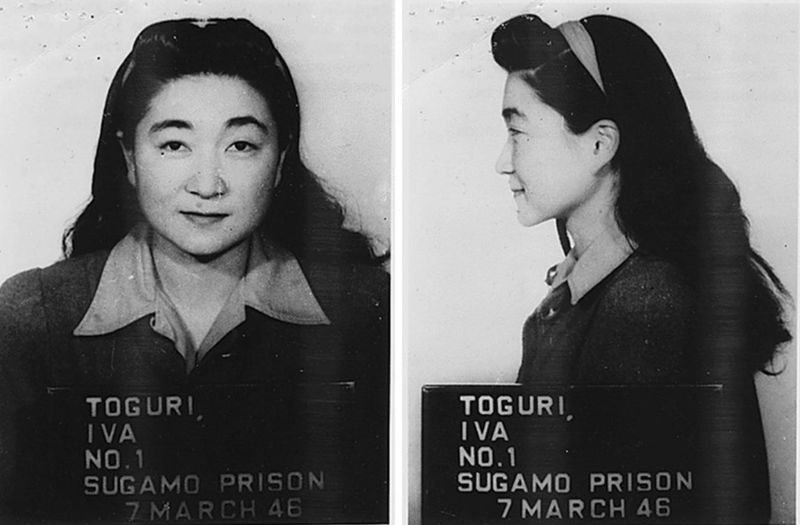In the annals of history, betrayal stands as one of the most intriguing yet condemnable acts. While some traitors are well-known, others lurk in history’s shadows. This post brings together 20 figures who turned against their own, showcasing both their infamous deeds and the lasting impact of their actions. From ancient betrayals that shaped empires to modern acts of treachery that shocked nations, these individuals remind us of the complex nature of loyalty and deceit. Explore these stories of 7 lesser-known and 13 infamous betrayers who left an indelible mark on history.
1. Antonio López de Santa Anna
Antonio López de Santa Anna, a pivotal figure in Mexican history, is often remembered for his role in selling Mexican land to the United States. His decision came after a series of military defeats, notably during the Texas Revolution and the Mexican-American War. Despite his initial popularity, Santa Anna’s repeated shifts in allegiance led to widespread distrust. His land-sale decision is viewed as a betrayal of national interests, tainting his legacy. Santa Anna’s actions are a reminder of how personal ambition can conflict with national duty. His legacy remains a topic of debate among historians.
2. Andrei Vlasov
Andrei Vlasov, once a celebrated Soviet general, shocked many by defecting to Nazi Germany during World War II. His decision stemmed from disillusionment with Stalin’s regime. Vlasov’s collaboration led to the formation of the Russian Liberation Army, which fought alongside the Nazis. This act of treachery was unforgivable to many Soviets, branding him a traitor. Vlasov hoped for a liberated Russia but misjudged Nazi intentions. His story highlights the complex choices faced by individuals under oppressive regimes. Despite his intentions, Vlasov’s name remains synonymous with betrayal in Russian history.
3. James Callender
James Callender, a Scottish-American journalist, became infamous for exposing Thomas Jefferson’s affair with Sally Hemings. Once an ally of Jefferson, Callender’s relationship with him soured after being denied a government position. Feeling betrayed, Callender turned to expose Jefferson’s private life. This revelation shocked the public and damaged Jefferson’s reputation. Callender’s actions highlight the power of the press and personal vendettas in politics. Despite his role in shaping public opinion, Callender’s life ended in poverty, a cautionary tale of ambition and retribution. His story remains a fascinating glimpse into early American journalism.
4. Earl of Surrey
The Earl of Surrey, a nobleman during the reign of Henry VIII, is remembered for his ill-fated betrayal. Accused of treason, his ambition for power led him to plot against the king. Despite his noble lineage, Surrey’s actions against Henry VIII sealed his grim fate. His execution marked a brutal end to his aspirations. The Earl’s story reflects the perilous nature of court politics in Tudor England, where ambition often led to downfall. His execution serves as a stark reminder of the ruthless political landscape of the time, where trust was a rare commodity.
5. Fa Ngum
Fa Ngum, once a revered Lao king, is known for his controversial exile and subsequent betrayal. Initially celebrated for unifying Laos, his later years were marred by conflict with his own people. Exiled for his harsh rule, Fa Ngum sought foreign alliances, turning against his homeland. His story is one of ambition turned to isolation, as his quest for power eclipsed his duty to his people. Despite his achievements, Fa Ngum’s legacy is tainted by his betrayal, a poignant example of how power can corrupt. His tale is a complex chapter in Lao history, marked by triumph and treachery.
6. Demetrius of Thessalonica
Demetrius of Thessalonica, a key figure in Byzantine history, is noted for his shifting allegiances during civil wars. Initially a loyal commander, he switched sides multiple times, playing both ends to gain power. His actions contributed to the instability that plagued the Byzantine Empire. Demetrius’s story illustrates the treacherous nature of Byzantine politics, where loyalty was often overshadowed by personal ambition. Despite his cunning, Demetrius’s legacy is one of distrust and opportunism. His story is a reminder of the human tendency to prioritize self-interest over loyalty, especially in times of political turmoil.
7. William Joyce (“Lord Haw-Haw”)
William Joyce, infamously known as “Lord Haw-Haw,” became a notorious figure during World War II for his role as a Nazi propagandist. Born in the UK, Joyce fled to Germany and began broadcasting Nazi propaganda aimed at demoralizing Allied forces. His broadcasts, marked by a distinctive voice, made him a household name. Joyce’s actions were seen as a grave betrayal of his country, leading to his post-war capture and execution for treason. His story highlights the impact of media in war and the severe consequences of siding with the enemy. Joyce remains a controversial figure in British history.
8. Judas Iscariot
Judas Iscariot, one of the most infamous figures in religious history, is known for betraying Jesus Christ for thirty pieces of silver. His act of betrayal led to Jesus’ arrest and crucifixion. Despite being one of the original twelve apostles, Judas’s actions overshadowed any good deeds he may have done. His story is often seen as a cautionary tale about the dangers of greed. Judas’s name has become synonymous with treachery and betrayal. His narrative is a powerful reminder of how one moment of weakness can define a legacy, lasting through centuries as a symbol of betrayal.
9. Benedict Arnold
Benedict Arnold, once a revered American general, is best remembered for his treason during the American Revolution. His plot to surrender West Point to the British was uncovered, forever tarnishing his name. Arnold’s decision was driven by personal grievances and perceived slights by the American leadership. His name has become synonymous with treason in the United States. Despite his earlier contributions to the revolutionary cause, his legacy is defined by this act of betrayal. Arnold’s story serves as a warning about the corrosive effects of resentment and ambition, overshadowing his once-heroic status.
10. Brutus
Marcus Junius Brutus, a key figure in Roman history, is renowned for his role in the assassination of Julius Caesar. Despite their close relationship, Brutus joined the conspiracy against Caesar, believing he was saving the Roman Republic. His betrayal is immortalized in Shakespeare’s play with the phrase “Et tu, Brute?” Brutus’s actions have sparked debates about his motives, whether honorable or ambitious. His legacy is one of conflict between personal loyalty and political ideals. Brutus’s story remains a profound exploration of the complexities of friendship, power, and betrayal in the annals of history.
11. Vidkun Quisling
Vidkun Quisling, a Norwegian politician, became synonymous with treason during World War II. His collaboration with Nazi Germany led to his appointment as head of the puppet government in occupied Norway. Quisling’s name is now a term for puppet rulers and traitors. His actions were driven by a misguided belief in Nazi ideology and a desire for power. Quisling’s legacy is that of a national villain, remembered for his betrayal of his country. His life and downfall underscore the dangers of ideological fanaticism and the devastating impact of aligning with oppressors.
12. Ephialtes of Trachis
Ephialtes of Trachis, an obscure figure in ancient Greek history, is infamous for betraying the Spartans at the Battle of Thermopylae. By revealing a secret mountain pass to the Persians, he ensured the defeat of King Leonidas and his 300 warriors. His motivation was likely personal gain, though some accounts suggest he sought revenge. Ephialtes’ act of treachery turned the tide of the battle, with his name becoming synonymous with betrayal in Greek culture. His story serves as a historical lesson on the impact one person’s actions can have on the course of history.
13. Mir Jafar
Mir Jafar, a key figure in Indian history, is notorious for his betrayal during the Battle of Plassey. As a commander in the Nawab of Bengal’s army, his defection to the British East India Company secured their victory. Jafar’s actions were motivated by promises of power and wealth from the British. His betrayal led to British dominance in India, with his name becoming synonymous with treachery. Despite his short-lived gains, Jafar’s legacy is one of infamy, illustrating the consequences of prioritizing personal gain over loyalty to one’s country. His story remains a significant chapter in India’s colonial history.
14. Guy Fawkes
Guy Fawkes, a figure tied to the infamous Gunpowder Plot of 1605, sought to blow up the English Parliament. His plan aimed to assassinate King James I and restore a Catholic monarchy. Fawkes’ involvement in this conspiracy marked him as a notorious traitor. Captured before he could ignite the explosives, Fawkes was executed. His story is commemorated annually in the UK with bonfires and fireworks on November 5th, known as Guy Fawkes Night. Though his plot failed, Fawkes’ tale endures as a symbol of rebellion and the complexities of political and religious turmoil.
15. Wang Jingwei
Wang Jingwei, once a prominent Chinese political leader, is remembered as a traitor for his collaboration with Imperial Japan during World War II. Leading a puppet government, his actions were driven by a belief that cooperation would spare China from further devastation. However, his allegiance to Japan branded him as one of China’s greatest traitors. Wang’s legacy is deeply controversial, as his intentions were viewed as both pragmatic and treacherous. His life encapsulates the moral dilemmas faced during wartime, where decisions are fraught with ethical complexities. Wang’s story remains a poignant chapter in China’s wartime history.
16. Robert Hanssen
Robert Hanssen, a high-ranking FBI agent, became one of the most damaging spies in U.S. history by selling secrets to the Soviet Union. Over two decades, he compromised numerous intelligence operations, driven by financial gain and personal disillusionment. Hanssen’s betrayal shocked the intelligence community, leading to his arrest in 2001. His actions resulted in significant harm to national security. Despite his motivations, Hanssen’s legacy is one of treason and betrayal. His story underscores the vulnerabilities within even the most trusted institutions and the far-reaching impact of espionage on global security.
17. Alcibiades
Alcibiades, a charismatic Athenian leader, is infamous for his shifting loyalties during the Peloponnesian War. His ability to charm and persuade allowed him to switch allegiances between Athens, Sparta, and Persia, seeking personal advantage. Alcibiades’s actions contributed to political instability in Greece. His legacy is one of a master strategist, yet his opportunism overshadowed his brilliance. Despite his talents, Alcibiades’s name is often associated with treachery and ambition gone awry. His story is a testament to the allure of power and the complex dance of politics, where alliances are as fragile as they are essential.
18. Lavrentiy Beria
Lavrentiy Beria, a notorious Soviet official, served as Stalin’s ruthless enforcer before attempting to seize power himself. Known for his brutality, Beria’s ambition knew no bounds. After Stalin’s death, his efforts to position himself as leader failed, leading to his execution. Beria’s legacy is marked by terror and betrayal, as his reign was characterized by purges and repression. His downfall underscores the perilous nature of Soviet politics, where power struggles were often lethal. Beria remains a symbol of the dangers of unchecked ambition and the brutal reality of totalitarian regimes.
19. Mordred
Mordred, a central figure in Arthurian legends, is famed for his betrayal of King Arthur, his father. Despite his noble birth, Mordred’s ambition led him to usurp the throne, resulting in a climactic battle that led to both their deaths. The tale of Mordred is one of familial conflict, ambition, and the tragic cost of betrayal. His story is immortalized in medieval lore, reflecting the timeless themes of power and the fragile bonds of kinship. Mordred’s narrative serves as an enduring cautionary tale about the destructive potential of ambition and betrayal within families.
20. Tokyo Rose
Tokyo Rose, a name given to female broadcasters of Japanese propaganda during WWII, became infamous for attempting to demoralize Allied troops. The most notable was Iva Toguri D’Aquino, an American citizen caught in Japan during the war. Her broadcasts, though coerced, led to her post-war conviction and subsequent pardon. The story of Tokyo Rose highlights the complexities of wartime propaganda and the impact of media on morale. Despite the controversy, her tale is a reminder of the human stories behind historical events, where individuals are often pawns in broader political games.
